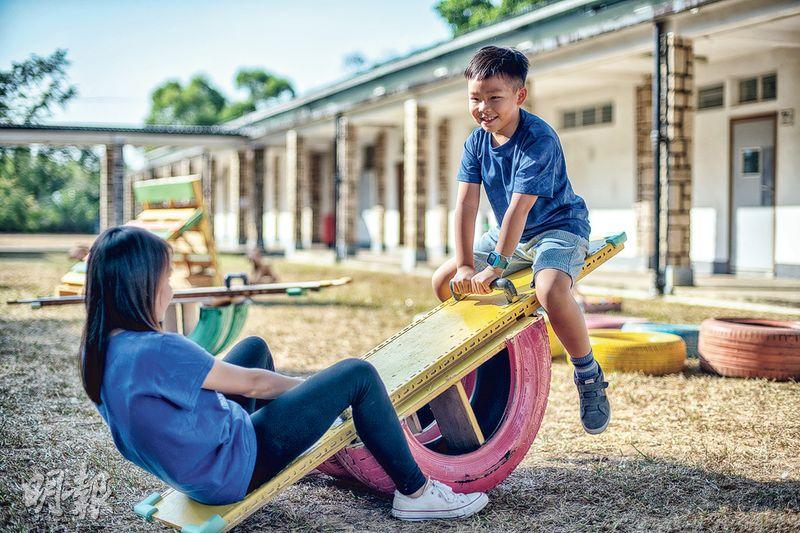Road to 5**:Hong Kong children and games
【明報專訊】Since 2017, Tung Wah College (TWC) has participated in international research sponsored by the Lego Foundation. A total of 594 five-year-old and seven-year-old children and their parents from Argentina, Denmark, the United Kingdom, the United States, and Hong Kong participated in the study. The researchers studied the children's ''philosophy of games'', and they discovered that more children from foreign countries view daily activities, such as cooking and going to the supermarket with their families, as games, but few Hong Kong children agree.
◆News summary
It was further discovered that children from foreign countries view coloring and playing the guitar as games, but children from Hong Kong regard them as learning. The biggest difference came when children were asked about using the phone: about 95% of children from Hong Kong view using the phone as a game, but only 24.3% of the children from Denmark agree. Scholars pointed out that children from Hong Kong have more difficulty discovering the fun in daily trivial activities.
According to Doris Cheng, Professor of the School of Arts and Humanities (Early Childhood Education) at Tung Wah College, Nordic countries place more emphasis on games. Local schoolchildren do not have homework until seven or eight years old, which allows them to spend more time playing outdoors. Studies have also found that Hong Kong children seldom express ''play behaviour'', which she defines as being friendly to others when playing games. She notes that Hong Kong children encourage others to ''not give up when you lose'', but not ''to be kind'' or ''to be nice'' to each other, which is very different from children from foreign countries.
The United Nations Children's Fund Hong Kong Committee (UNICEF HK) interviewed 1029 local parents in an online questionnaire in February 2018, and they found that nearly 84% of the parents had misunderstandings about free play. More than half of the interviewed parents mistakenly associated free play time for their children with activities related to electronic products.
Source: Ming Pao, 17 February 2020
■Mock examination question
Describe two differences between children from foreign countries and children from Hong Kong in their ''philosophy of games''.
Point One: Differences in understanding of ''gaming'' and ''learning''
Children from foreign countries and children from Hong Kong have the biggest disagreement in the usage of mobile phones. 95% of the interviewed children regard using mobile phones as games, but only 24.3% of children from Denmark agree. In addition, more children from foreign countries view daily activities, such as cooking or going to the supermarket with family, as games, while few Hong Kong children agree. Foreign children regard coloring and playing the guitar as games, but Hong Kong children regards these activities as learning.
Point two: Differences in stance towards games
Studies have found that Hong Kong children seldom express play behaviour, which is defined as being friendly and kind towards others when playing. According to Doris Cheng, Professor of the School of Arts and Humanities (Early Childhood Education) at Tung Wah College, Hong Kong children encourage peers to ''not give up when they lose'', but they seldom ask others ''to be kind'' or ''to be nice'', which is very different from foreign children.
Translated by Odyssey Lang
[通通識 第686期]










